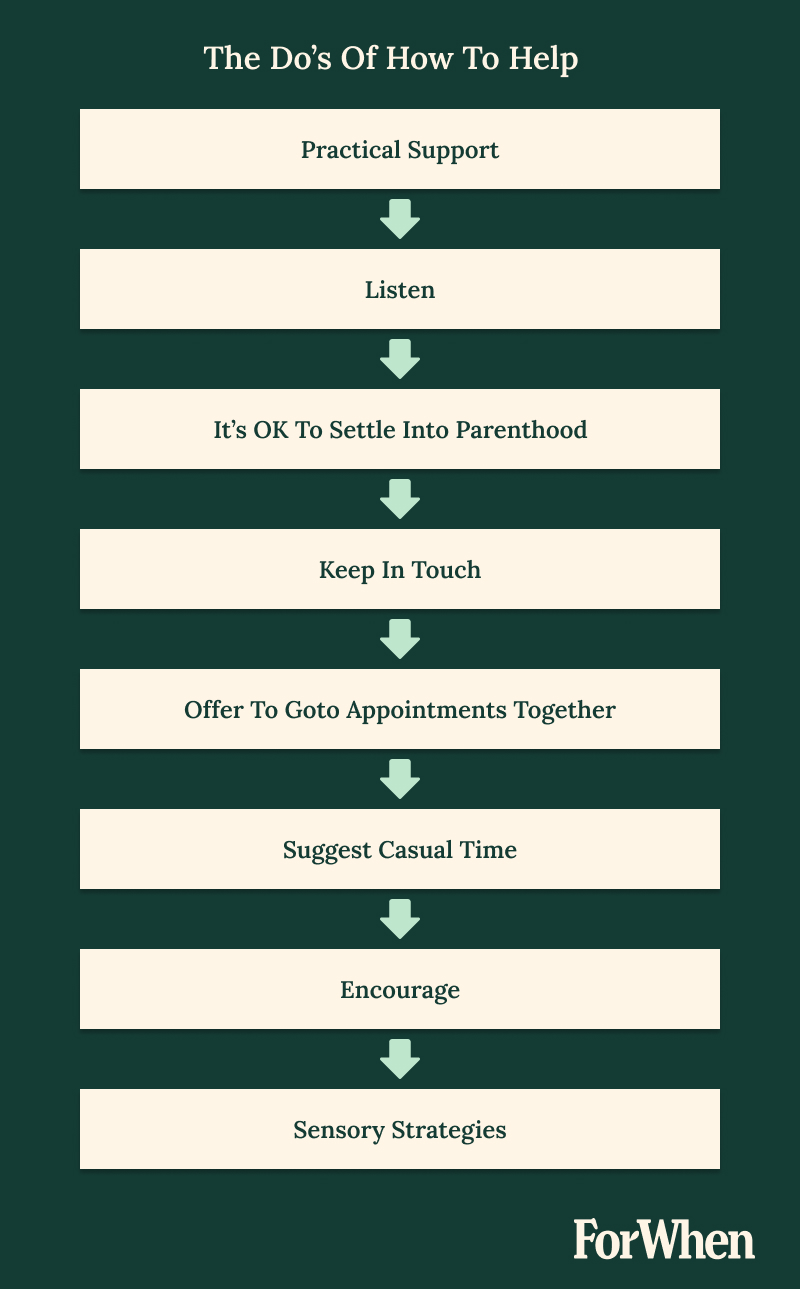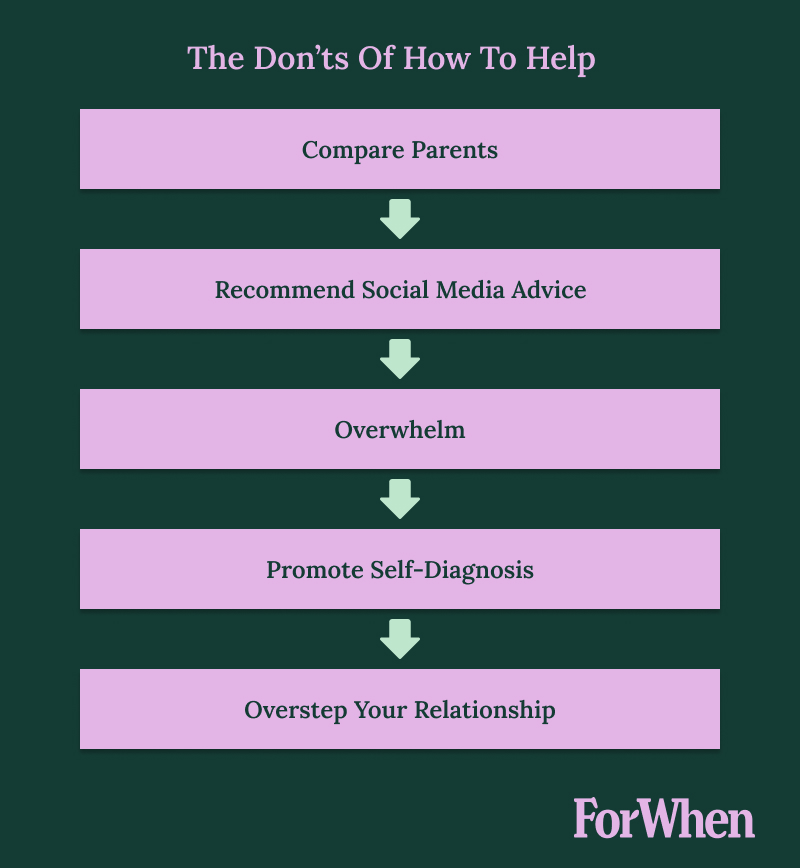Why it’s important to take it seriously
Women’s mental health is particularly important in the perinatal period (during pregnancy and up to 12 months after having a baby), being a stressful and challenging time, with lots of changes in hormones, sleep, routines, lifestyle, and topped off with the huge responsibility of a tiny baby. Whilst some postnatal anxiety and postpartum depression will resolve for many, additional supports and treatment may be required. For some mothers and fathers anxiety and depression, it can become severe and require intensive interventions. We do know that getting help early can assist in raising thriving infants.
An increase in anxiety during pregnancy and after having a baby (postpartum anxiety) is common, but when it begins to impact your capacity to care for yourself or your baby or you start to avoid friends or going out of the house, it is time to get help.
Anxiety and postpartum depression can impact on a mother’s capacity to start building a relationship with their new baby and to do the activities that promote brain development (playing and talking to a baby however young), let alone the everyday chores associated with living. And surprisingly even tiny babies can pick up on your anxiety and become less settled.
Parenthood is a period of huge adjustment – adjusting to a new way of life, the responsibility of having to care for a baby as well as themselves, or perhaps caring for 3 children instead of 2. It is important for a family member or friends to be kind during this period and practice compassion in the face of a period of great change for your friend.

Watch out for the signs and symptoms:
- Distressing thoughts – it would be unusual for a new mother or father not to question whether they are doing the right thing to care for their baby, whether they are a good parent, or have thoughts that they might accidentally harm their baby, or something bad will happen if they do not do something to prevent it, which might be completing rituals, counting things or completing tasks in a certain way. But when this begins to impact their ability to care for themselves or their baby or becomes all-consuming and causes distress to the point that they start to avoid having contact with the baby like changing a nappy, or bathing baby in case they act on those thoughts, it is time to seek help.
- Low mood, being teary, angry, irritable or anxious are all signs that things are not going well, especially if they have been present for more than two weeks. If a parent is having thoughts that they do not want to be around it is the time to get urgent help.
- Lack of sleep – all new parents have broken sleep, having to get up overnight to feed and settle their baby. However, when the baby is asleep and they are not able to get back to sleep in a timely fashion, can’t switch off their brain, or find themselves lying awake anticipating when the baby will next wake up for an extended period of time after birth it is a good idea to talk to a health professional and get further support.
- It is really common to have feelings of guilt, perhaps feeling that you have not immediately fallen in love with your baby, or regretting the decision to have a baby, for feeling tired and irritable towards your baby or partner, perhaps for not spending all your time with baby as there is yet more washing to do (more than you ever thought a small baby could produce) or for spending a little bit of time doing something for yourself.
- For some mothers the transition to parenthood started in a very frightening way, with a traumatic delivery or the baby having to spend some time in the NICU or special care nursery. It can be very difficult to talk about these experiences as others often do not understand or try to minimise the experience with well-meaning comments like “at least you have a healthy baby”. But if feelings about this experience do not reduce over time, parents have nightmares or avoid places like the hospital where they gave birth, it would be advisable to talk to a Doctor, child and family health nurse, midwife or call the ForWhen navigation line to find a service for your friend.
- Babies come in all shapes, sizes and personalities, and how parents relate to their new addition comes from a whole host of life experiences mixed with their current circumstances. Some babies are tricky to feed or to get to sleep, and some babies cry A LOT! What we do know is that even if you have done everything that you think you can (feed, change, settle) some babies will still cry. A close 0friend or support person can make all the difference, helping them with their own distress or their baby’s distress, providing another pair of hands to help settle the baby and being a circuit breaker for the family. If thoughts of frustration or anger can become overwhelming, put the baby somewhere safe and walk away for a short time to catch your breath.
What to say and do in those first moments
Remember that you do not need to fix the problem, after all, who likes to be told what to do when you are just wanting to talk about how you are feeling? Instead, come in with a curious mind rather than a fixing mind. Prompts such as “tell me more to understand the experience”, “what is your biggest worry?”, “tell me a bit more about your day?” can be helpful starting points that allow you get a better understanding of how they are feeling and managing.

The Do’s:
- Offer practical support – ask what daily life chores need doing, it may be doing a load of washing, cooking a meal, cleaning the house, getting groceries, or even holding the baby whilst they have a shower or a nap. A few hours makes an impact.
- Listen to them – by just listening you are showing you are there for them.
- Remind them that it’s ok to go with the flow and settle into new parenthood.
- Reassure your friend that unfortunately babies don’t come with a manual, instead they are the manual and have to learn and watch for cues.
- Make time to keep in touch – whether it be a text to check in, a phone-call or arranging a time to pop round, expect plans to change as babies are unpredictable and a bad night can put a whole new perspective on the day, but keep trying.
- Go with them to appointments – sometimes it’s hard to get out of the house seeking treatment on your own with a baby and it can be so anxiety-provoking that it gets too hard. Offering to go with someone means there are two heads to problem solve, hold the baby during the appointment, grab something to eat and enjoy a warm coffee.
- Suggest activities that you used to do together – it can be very lonely at home with a baby/children and challenging to make decisions or come up with ideas, so it can be really helpful is someone else to take the lead (in a respectful way), even if it is just getting outside and going for a walk around the block.
- Encourage them to be in the moment, rather than worry about what might happen tomorrow or next week, or when their baby goes to school. Learn mindfulness techniques that involve the senses rather than focusing on breathing.
- Use sensory strategies to help calm the whole body – weighted blankets, pets, heat packs on a lap or wrapped around them, play a favourite music playlist, dance with the baby, yoga stretches, hop in a hammock or rocking chair and swing for a bit.
- Offer to spend casual time with them – watching your favourite movie together at home, playing sudoku, hanging out at home with a mother and make a cup of tea.
Be patient with them as they navigate these new waters – expect plans to change and new parents to not be able to make decisions, anxiety and depression contribute this process. Let them complain about their baby, husband, mother, dog, washing machine, neighbours, just be there for them.

The Don’ts
- Compare to other parents – everyone one is different. Anxiety and depression can contribute to usually confident, competent independent women feeling unorganised and unsure what needs to happen next. Some women bounce into motherhood, some go kicking and screaming – both are perfectly acceptable, some might require some support to get there. – Remind them that there is no such thing as a perfect mother (and babies do not need a perfect mother).
- Recommend social media as a source of support or information or reality checking (remember, the photos on Facebook /Instagram are the chosen highlights not how every day is!)
- Overwhelm them – with suggestions , solutions or theories. Try to make suggestions in a gentle and sensitive manner, and if they are not receptive, maybe try again another time.
- Self-diagnose – just because it looks like they have the symptoms of anxiety or postpartum depression, this is a decision that a qualified professional needs to make. Let then know that you are concerned that how they are feeling may not be how it has to be and encourage them to seek help from a GP.
- Overstep your relationship – it’s good to check in and reflect on the nature of your relationship. Are you the best person to be having this conversation? Do you need to talk to their partner, mother, sister or another closer friend and let them know your concerns?
Learn about perinatal mental health
Baby blues
So much changes when you have a baby – sleep, routines, hormones, relationships, what you can and can’t do. Some period of adjustment is normal, with the baby blues being a period approximately 5 days postnatal when mothers can be teary, overwhelmed , irritable but this usually resolves within a few days. If you notice these symptoms aren’t resolving, seek further support.
Perinatal anxiety
Anxiety is a normal part of life, and it is stressful having a baby, but anxiety can become a problem if it impacts on how you function. It can feel like you are ” going crazy” with racing thoughts, physical symptoms like feeling sick, upset stomach, shaking, sweaty hands, feeling on edge, irritable exasperated by lack of sleep. It can also be characterised by avoiding situations in case something bad happens.
Perinatal depression
This is a common and possibly debilitating condition that affects 1 in 5 women. It can impact your ability to care for your baby, with symptoms including feeling low or numb, angry or irritable, lack of interest in anything, including sometimes your baby, lack of concentration and poor memory, low energy, lack of confidence, feeling guilty, hopeless, close to tears much of the time and sensitive to other people’s comments. Parents may also experience changes in sleep and appetite, feeling isolated from others or having thoughts of wanting to harm themselves.

Help them research different options for health professional support & advice
Doctor’s appointment
This is often the best place to go first if symptoms are impacting on functioning or they are having distressing thoughts. Check they have a good relationship with their GP when talking about emotional issues, if not can they find one? Help them write down the symptoms and issues that are worrying them, they may seem quite vague, but together they will give a good picture of what is going on . GPs can complete a mental health treatment plan (MHTP) which will give you the Medicare rebate on the fees charged by a counsellor. GP’s will usually ask you to try psychological therapies before you try medication, but this will depend on how severe your symptoms are.
Professional advice
There are several types of professionals that you could see who can help with postnatal anxiety and postpartum depression. These can be accessed through public systems such as community health, but can also be working in private practice including allied health workers (social workers and occupational therapists), psychologists and clinical psychologist. You do not need a MHTP to see a counsellor or psychologist, but it will give you the Medicare rebate. A counsellor has usually got qualification in counselling (but anyone can call themselves a counsellor – so wise to check their qualifications) and they are not eligible for a Medicare rebate.
In some areas there are specialised perinatal wellbeing social groups or mother’s groups, mindful mother’s programs. Chat to your Child and Family health nurses as they will know where they are located.
Support resources and helplines
There are lots of websites with reputable, specialised and helpful information on perinatal mental health issues, including:
- ForWhen – 1300 24 23 22 – for any parent or family member not sure where the best level of care or type of service that would be appropriate.
- COPE – 1300 740 398
- Beyond Blue – 1300 22 4636
- PANDA – 1300 726 306
- The Parent Helpline – 1300 1300 52
- Mumspace – online programs that parents can complete in their own time.
Urgent or emergency options
In really severe or acute episodes, when someone is not feeling safe, having intrusive and distressing thoughts to harm themselves of the baby or others, appear to have lost touch with reality, saying odd or unusual things or have excessive energy and don’t need to sleep, this is a mental health emergency, seeing a GP urgently, calling the Mental Health intake line, attending the Emergency Department or calling the ambulance is required.

A friendly word makes a big difference
- Approach – ask if they are OK, sometimes they will say that they are (and look like aren’t) ” I noticed that …. ” can sometimes be a way in. What would you want someone to say if this was you if you were struggling?
- Listen to the person non-judgmentally.
- Give the person reassurance, tell them them that they will get better as they take steps to recovery, and remind them they will have good days and not so good days. That you will be there to help them through this hard time.
- Encourage the person to seek appropriate professional help.
- Encourage the person to seek self-help and other support strategies.
Frequently Asked Questions
See our answers below to commonly asked questions we receive about helping someone with postnatal anxiety.
Accepting practical supports, allowing friends to help get you out, reducing expectations of what has to be done each day and the idea of being a ‘perfect parent’, encouraging them to get support through professional help or linking with other mothers for support, encouraging them to leave the house for a break or light exercise.
Please seek help from GP or other professional and accept practical help, after all it takes a village to raise a baby.
It’d be helpful to talk to a support family to calm anxious moms. Mild to moderate postpartum anxiety may be addressed using talk-talk-talk and cognitive behavioural therapy.
It is common and treatable, things will get better.
Talking with an experienced therapist before the birth can help reduce your stress levels after conceiving a child.
Absolutely! 1 in 10 dads experience anxiety and postpartum depression. The treatment options are the same, but be mindful of the stigma surrounding mental health issues are intensified when it comes to men seeking help and perinatal services are often geared towards women. Call the ForWhen helpline to find local dad friendly services.

